Feeling tired, hard to concentrate, or just simply sleepy when it comes to studying? You’re definitely not alone.
We all have had those days where our brains feels numb and drained, only to remember that we still have more studying to do. Joy.
So here are 14 tried-and-tested, practical yet sustainable ways on how to focus when studying, no matter how tired you feel.
Contents
Setting up the right environment is your first step to effective study sessions.
The type of light matters. Studying in a room with natural light sources (e.g. near a window) does wonders on keeping you focused and alert, even in the afternoon. Studies have shown that people that had exposure to day light (vs. artificial light) in the day tend to stay alert for longer in the evening.
For night time studying, make sure your environment is sufficiently bright, and don’t just rely on one lone light source, if possible.
Getting too comfortable is a recipe for drowsiness, not something you want when learning new concepts!
Here are a couple of easy ways to minimize that:
 While it isn’t necessary to wear suits or office clothing, it is harder to fall asleep in them vs. your comfy sleeping attires.
While it isn’t necessary to wear suits or office clothing, it is harder to fall asleep in them vs. your comfy sleeping attires. Eliminate digital distractions:
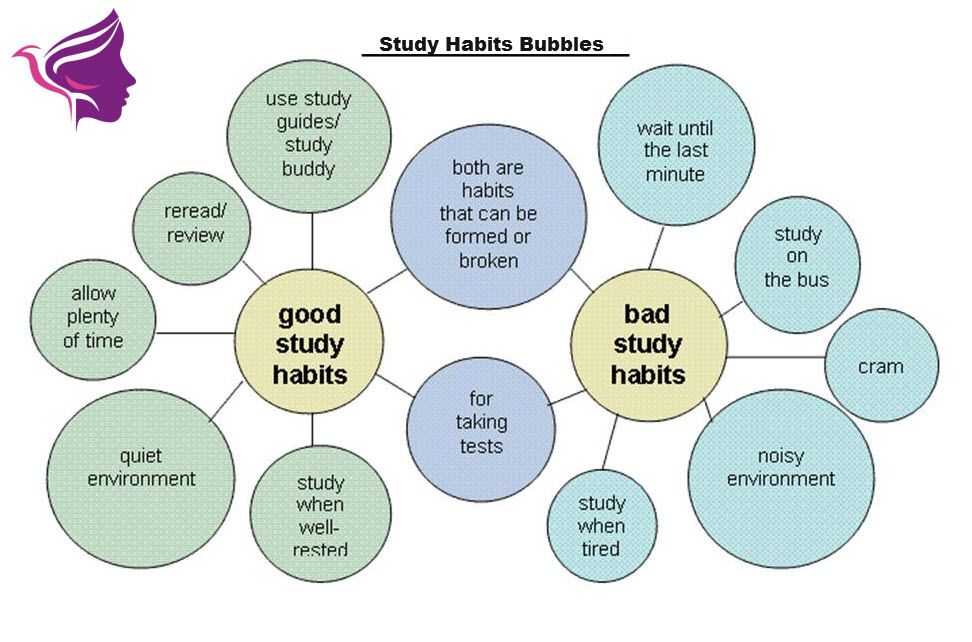
Remove yourself from potential family-related distractions, if you can:
Studying in a group can be a double-edged sword, as it can quickly descend into a chatting session with zero productivity.
That said, studying with another person with the same goal could be useful for motivation and keeping each other going, just like a gym buddy.
It can be tough to find the right study partner, but if you do find one, it can work wonders on your concentration to see someone else working as hard to achieve their goals. Make sure you continue to evaluate your ability to focus if you decide to join a group.
A common mistake people make is to think that drinking coffee helps perk them up to keep working. It doesn’t.
It gives you that very short term one-off boost and sends your productivity crashing later: not a great long term solution. Water is what your body really needs when you’re tired, as dehydration forces your body to work harder, gives you pounding headaches and increases your mental exhaustion.
So drink up! You’d be surprised how little you drink only when you try to match up to the daily 1.5-2 litre recommendation. I find the easiest way to implement this is to have a large bottle near me full of water that I sip as the day goes along whenever I feel like a break for a minute or two.
While you’re at it, washing your face, brushing your teeth or having a quick shower will work wonders in refreshing you from your sleepy state, so you can keep going. Plus they are completely natural and good for you too!
By now you’d have known that we’re huge proponents of eating proper food for best performance.
Avoid highly processed food such as sugary cereals, sodas and instant noodles. Remember not to have heavy meals before studying, it’s a recipe for sleepiness!
Fuel your body and mind with natural, nutritious food balanced with protein, carbohydrates, vegetables and healthy fats for sustained energy throughout the day. You are what you eat.
Pro tip: remember to bring along revision friendly healthy snacks (e.g. apple, granola bar, unsalted nuts, water etc) so you can keep your brain energy levels steady and maintain focus.
Study when you’re most alert: Our bodies run on roughly a 24-hour internal clock called circadian rhythm, which regulates feelings of sleepiness and wakefulness over a 24-hour period.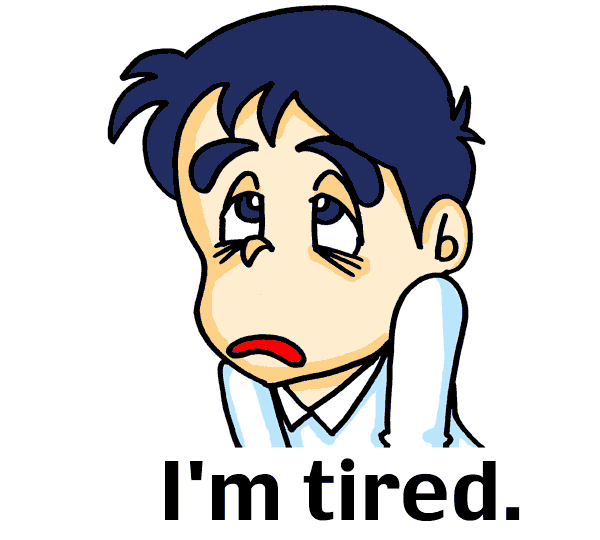 On average, most of us show the following pattern in energy levels (with a few exceptions):
On average, most of us show the following pattern in energy levels (with a few exceptions):
Therefore, for most of us, if you’re studying in weekdays with a full time job, it may makes sense to get up earlier to get 1-2 hours of studying done before heading to work.
For night time study, exercise moderately for 10 min beforehand: This refreshes the body and mind so you can stay focused for the next few hours. Yet, it doesn’t over stimulate you such that it affects your night time sleep. Time to whip out those dusty kettle bells, perhaps? Or simple jumping jacks will do. Not a 30 min run though.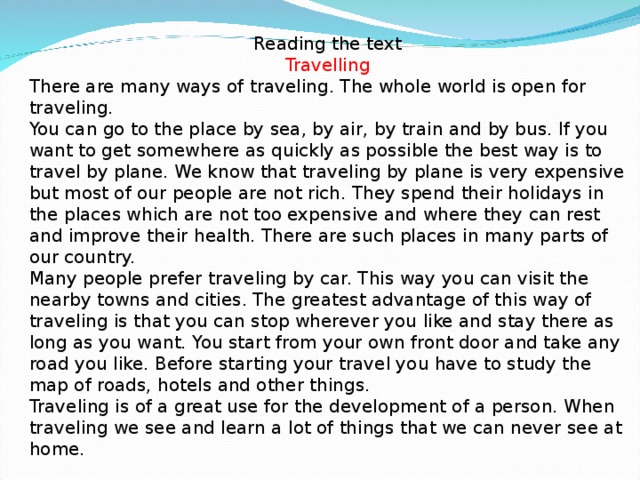
Remember to take regular study breaks: Specifically a 10-15 min break after a 45-50 min study cycle. Many studies have shown that productivity increases when students take frequent breaks. It keeps you motivated and have something to look forward to, while giving your brain a quick rest. Go for a walk (see #8), do some chores, have a snack, or just to chill out and listen to music for a bit – take your pick.
Getting some fresh air and sunlight outside will make you feel more energetic and less moody.
The benefits of a walk goes beyond simply being more effective at studying. Walking for 30 minutes a day is equivalent to taking a “magic pill” that combats ageing, relieves depression and prevents early death.
It also improves the ability to think and reason, increases energy levels and reduces fatigue.
It sounds counterintuitive, but exercising actually boosts energy and focus. Instead of sitting there forcing yourself to work/study more when you know your focus isn’t there, take a little break by during some stretching and light exercises by your desk for 10 minutes – it’s all about studying efficiently anyway. A great plus about exercise is that they help you sleep better too.
A great plus about exercise is that they help you sleep better too.
Studies have shown that chewing gum while studying or during exam improves your memory and concentration.
Now that’s way better than using stimulants like coffee, with no negative impact on your sleep quality and keeps your internal body clock in check (see #7). And mind you, I’m saying this as someone who enjoys coffee, a lot (see #8).
Coffee (or any other caffeinated drinks) can be extremely effective if used sporadically, not a daily habit.
Too much caffeine has long term negative impacts: More than 400mg, or 4 cups of brewed coffee a day is likely to cause insomnia, inability to focus, increased anxiety, headaches and fatigue that can disrupt your body’s natural circadian rhythm (see #7).
Limit caffeine to mornings only, if you must have them daily: This ensures that the caffeine has sufficient time to go through your body and not impact your sleep quality at night.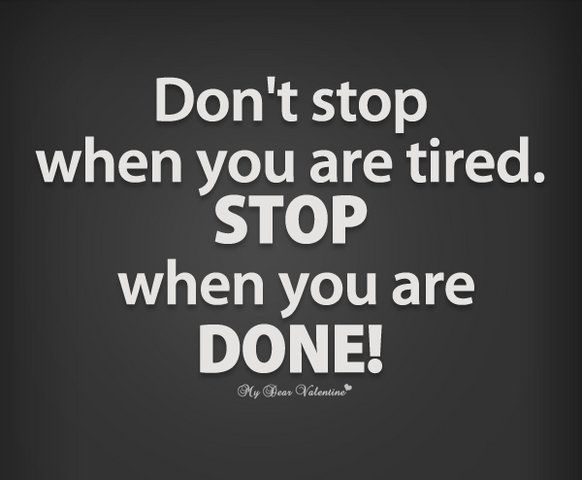
Avoid energy drinks (and alcohol) for studying: Energy drinks have increasingly become a source of caffeine overdoses. Too much of these stimulants and chemicals can cause dependence, dehydration, insomnia, heart palpitations and/or an increased heart rate. I think the reasons for alcohol are more obvious 🙂
When you’re feeling tired, and nothing has been entering your brain for the last 15 minutes, it may be worth switching to an easier task or topic to keep the studying momentum going.
With an easier topic to absorb, this maintain your productivity and keeps you on track with your study plan. Save the trickier chapter for next morning, when you should naturally be at your peak level of concentration.
I am a big advocate of power napping, specifically 20-30 minutes at maximum. It is my secret productivity weapon. I used this technique frequently after lunch when studying for the CFA exams on the weekend, in addition to a full time job. I feel completely refreshed and ready to go for a minimum time investment – much better than caffeine, in my view.
I feel completely refreshed and ready to go for a minimum time investment – much better than caffeine, in my view.
This observation is supported by many studies that have found that power naps boost memory, cognitive skills, creativity, and energy level. You’ll need to practice this, as you may find yourself a little groggy and wanting more sleep the first few times.
It’s not worth it. No matter what.
Studies have shown that the effects of lack of sleep have been compared to being as dangerous as drinking alcohol. Sleep deprivation is just bad for you and definitely not sustainable.
Nor is it effective in the long run, as it will take you at least more than 1 day to feel normal again (messing up your internal body clock, remember?). That math alone tells you it’s a bad decision.
The amount of sleep each of us needs varies, but age is a big factor. As a general guide, adults aged 18-64 generally need 7-9 hours according to National Sleep Foundation.
If you’ve tried out all the previous 13 tips and strategies in vain to improve your study focus and stay awake, it may be time to question whether you have had enough sleep in the first place. If you do have 7 hours sleep and still feel exhausted, it’s time to audit your sleep quality and how you can sleep better.
Like good diet and exercise (see #6 and #8), sleep is a critical component to overall health. It’s worth evaluating the bigger picture and craft a sustainable long term approach to your studies to improve your chances of success.
And that starts by taking care of yourself.
Which strategy do you find most effective in increasing your study focus? Do you have more tips to add? Share with us in the comments below!
Meanwhile, you may find these related articles useful:
Studying isn’t always stimulating — especially after a long day in class or at work, when your brain feels ready to shut down.
If simply staying awake while studying seems harder than quantum physics, try one of the following nine strategies to help you be alert and focused.
Movement is a well-documented energy booster. In addition to helping you stay awake, it may also help relieve exam-time stress and improve your ability to actually remember what you study.
A 2018 study of students of all ages — ranging from elementary school to college — found that 10 minutes of walking outdoors significantly improved students’ performance with memory, feature detection, and mathematical problem-solving tasks.
Aim to take a short break every 30 to 50 minutes to walk, dance, or do a few jumping jacks.
Our bodies are attuned to respond to environmental signals such as light and darkness. While the relationship between light and sleep is indirect — it’s possible to fall asleep in a well-lit room or to stay awake in darkness — light is a cue that can help promote wakefulness.
According to a 2017 study of zebrafish, this tendency may come down to a protein that’s activated when we’re exposed to light.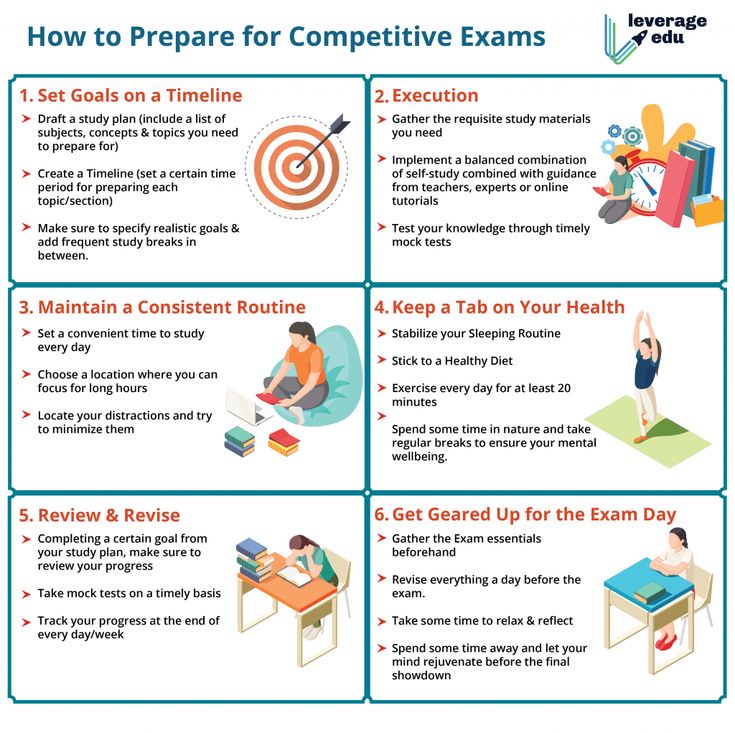
When it comes to studying, try to mimic a daytime environment with plenty of light. If it’s dark outside, a single lamp or overhead light might not be enough to keep you alert.
It might be tempting to get comfortable while studying, but it won’t help you stay awake.
Lying down is associated with increased activity in the parasympathetic nervous system, known for its role in functions such as “rest and digest.”
In contrast, sitting upright is associated with sympathetic nervous system activity. The sympathetic nervous system controls functions such as alertness.
A 2014 study analyzed whether sitting upright or lying down affected performance on a test of working memory.
The authors reported that when participants were lying down for the test, their self-reported sleep quality negatively affected their performance. Sleep quality didn’t affect performance when participants were sitting upright.
How does this relate to studying? If you’re feeling tired, sitting up may help you stay focused and alert.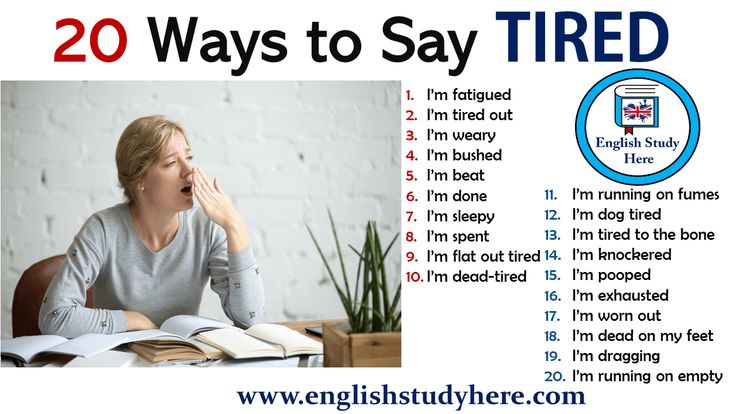
You may also want to try standing up instead of sitting while you’re studying. Standing and moving around from time to time may help boost your blood circulation. This, in turn, may prevent you from getting sleepy.
If you live in a dorm room or shared apartment, the most convenient place to study might also happen to be the place where you usually sleep.
But it’s best to avoid studying in any place that you associate with sleep, which could leave you feeling drowsy.
When possible, study somewhere else, such as a library, coffee shop, or a dedicated, well-lit area of your home away from your bedroom.
By keeping studying and sleep areas separate, you’ll also be making it easier to turn off your brain when it’s time to go to bed.
Fatigue or sleepiness is sometimes a sign of dehydration. But dehydration won’t just drain your energy — it may also disrupt cognitive functions, making studying difficult.
A 2010 review examined dehydration, including its effects on brain function.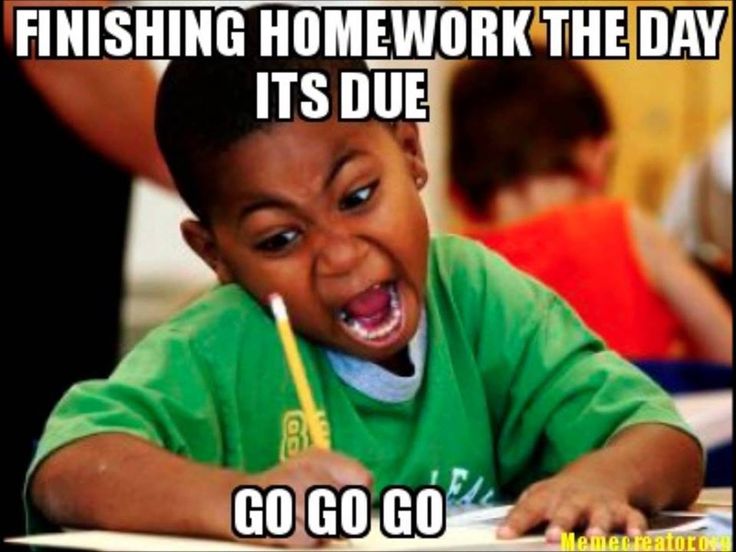 The authors reported that mild to moderate levels of dehydration might impair short-term memory, concentration, mathematical ability, alertness, and perception.
The authors reported that mild to moderate levels of dehydration might impair short-term memory, concentration, mathematical ability, alertness, and perception.
To ensure that you don’t doze off while studying, stay hydrated throughout the day. This is especially important if you’re physically active or live in a warm climate.
While how much you should drink varies from person to person, aim for around half a gallon per day.
What and how much you eat affects your energy levels.
While it may be tempting to treat yourself while studying, it won’t help you stay awake. Sugary snacks and junk food can make your blood sugar spike and then crash, leaving you feeling sluggish.
On the other hand, if you forget to eat or eat too much, you might find yourself dozing off.
Instead, aim for a diet of small but frequent meals. Make sure each meal contains protein, a complex carbohydrate, and a source of healthy fat. Some examples include:
Reading and rereading class notes or a textbook might not be enough to keep you awake, let alone absorb information.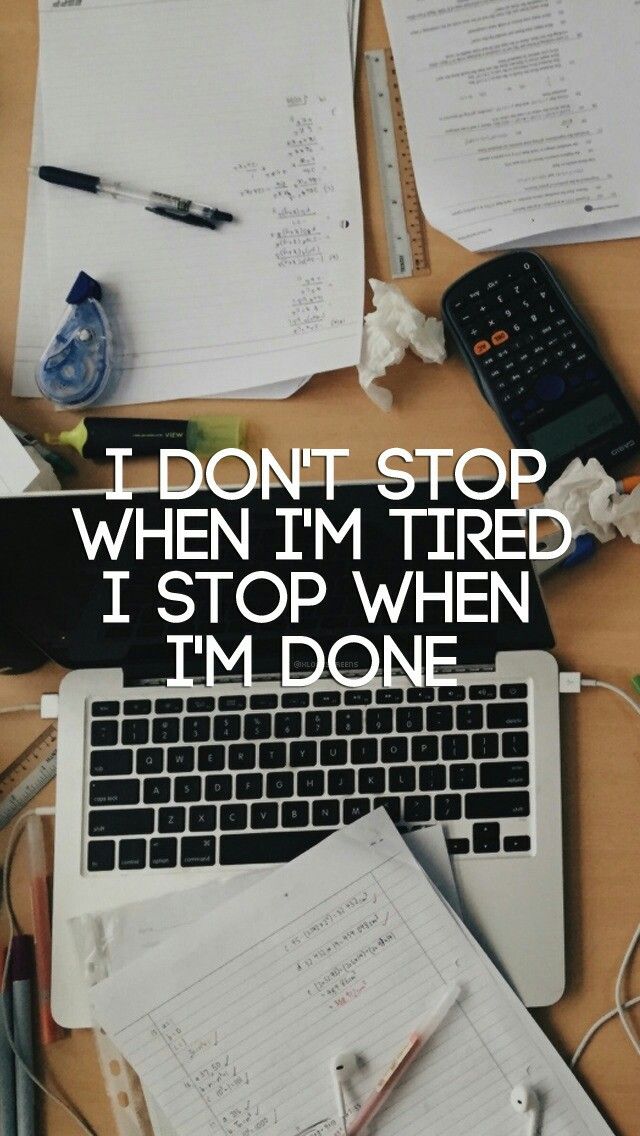
Keep yourself awake — and get the most out of your study sessions — by using active study techniques. To do this, try one or more of the following:
Avoid nodding off by talking through the material with a classmate, friend, or study group.
Not only is social studying more motivating and stimulating, it can also offer new perspectives and interpretations of class materials. Ask someone to explain a confusing concept to you, or solidify your own understanding by teaching the material to a peer.
If you prefer to study individually, you might find that simply studying in the presence of other people makes it easier to avoid falling asleep.
Sleep plays an important role in mood, attention, motivation, and memory — all of which affect learning. It’s no surprise then that poor sleep is associated with poor academic performance.
It’s no surprise then that poor sleep is associated with poor academic performance.
In fact, making sleep a priority — both in the short- and the long-term — might be the most effective way to stay alert when you’re studying.
In a 2019 study, students were presented with detailed factual information over 5 hours. Midway through the 5-hour period, they either took a 1-hour nap, watched a film, or crammed the information. They were tested on the material 30 minutes after the end of the learning period and 1 week after the end of the learning period.
The researchers found that after 30 minutes, students who had either crammed or napped were able to recall the information better than students who had watched a film. However, after 1 week, only the students who had napped maintained better recall of the information.
Make time for naps, and stick to a regular sleep schedule to help make studying easier.
Staying alert and focused can be challenging when you need to study, especially at the end of a long day.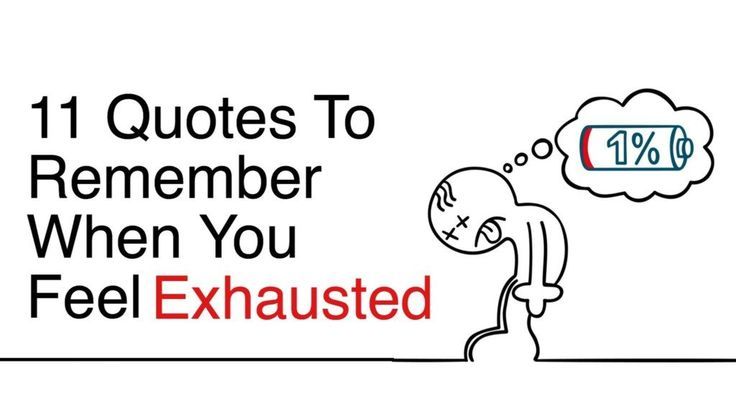 But there are ways to boost your wakefulness and avoid nodding off in the middle of a study session.
But there are ways to boost your wakefulness and avoid nodding off in the middle of a study session.
The key is to adopt healthy habits, like staying hydrated, eating regular balanced meals, getting exercise, and prioritizing your sleep whenever possible.
Other strategies that may help include studying with friends in a well-lit area, avoiding your bedroom, and using active learning techniques.
TrendingFandom
Hola, querida. I know, I know: the school year is a mini-version of hell, but it’s definitely not worth scoring lessons. What to do if there is no strength left? First, get some rest, because your health is not iron, and then use these super-useful tips that will definitely make you an excellent student.
Did you think it would be something like “drink more water, start everything in the morning”? Maybe if this article was written by Nadia, but you are dealing with the best student of Las Encinas, so get ready to receive new information.
American psychologist Howard Gardner has developed seven learning styles, and to get better at it, you need to find yours. Now I will quickly talk about each, and you think which one suits you best.
Visuospatial . Suitable for those who most of all like to work with images and graphics. If you're one of those, then try taking notes using visual methods, such as a mind map that represents ideas through images.
Kinestatic . It is easiest for such people to learn by doing something at the same time. They need to touch things, act out scenes and keep moving. If you have noticed this in yourself, then the best thing for you to learn is by walking and listening to podcasts. And if you need to read something, then do it while walking around the room.
Musical . Rhythm helps people with this type of intelligence learn. Play quiet music in the background - if it helps you focus and work better, then you hit the bull's-eye.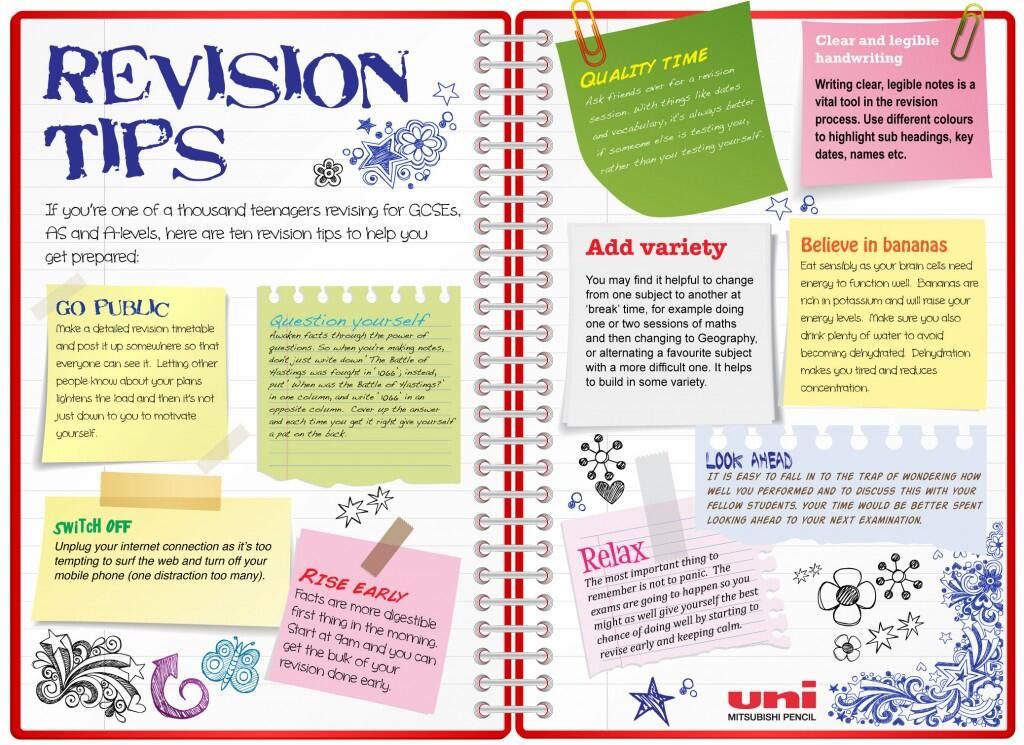
Intrapersonal . Method for true introverts. If you are the type of person who generates energy by reading books, then you are just very lucky :)
Interpersonal . This one is for extroverts. Such people (surprisingly, but true!) in their studies are helped by communication. In this case, just do your homework in a group with friends or chat with someone alone in parallel.
Linguistic . For those who are good with words. To memorize large amounts of information, it is enough for them to read aloud, and then all the necessary facts fit into the head on the shelves. Try it - maybe this is just your case.
Logical and mathematical . These are logical and rational people who love to solve problems and puzzles (note: at the same time, it is very important for them that a clear answer awaits them at the end; they do not want to solve something just like that).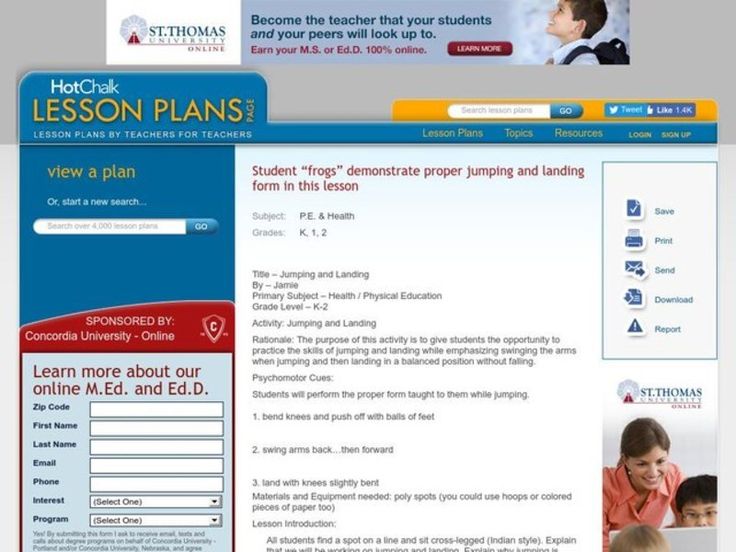 If this description fits you, then focus on "logical" things: for example, try to think about how much what you are studying has value in real life.
If this description fits you, then focus on "logical" things: for example, try to think about how much what you are studying has value in real life.
What distracts you the most while studying? Of course, social media. Believe me, I also update Instagram (an extremist organization banned in Russia) 256 times a day, but when I sit down to do my homework, I prefer to block it for a while so as not to scroll through a bunch of messages in the ever-bursting direct. Fortunately, there are now many useful blockers that do all the work for us, so willpower does not have to be trained.
Guzman is ideal, but not everyone in this world is so lucky. Anyway, social interaction will help you get a second wind when you feel squeezed out of your studies. After all, you must admit, sometimes it happens that you feel exhausted, and then you come to a party or any social event and immediately feel this obscure energy flashing inside?
Anyway, social interaction will help you get a second wind when you feel squeezed out of your studies. After all, you must admit, sometimes it happens that you feel exhausted, and then you come to a party or any social event and immediately feel this obscure energy flashing inside?
There is a scientific explanation for this (very simple, actually). Social interaction releases oxytocin, which reduces cortisol levels, and from there comes a reduction in stress levels. Less stress means more opportunities to learn new information. But here are some more perks for you:0003
You will hear a different point of view and maybe it will lead you to a couple of interesting thoughts.
Your study buddy might have heard some info in class that you missed for some reason.
When you study with someone, you formulate your ideas out loud, and they immediately become clear.
You can act as a teacher for your homework partner and we all know that the best way to learn is to teach ;)
 Set the ideal temperature for studying
Set the ideal temperature for studying You won't believe it, but this exists. If you start to fall asleep while doing your homework, then you should check the temperature of the room in which you are. A curious study was conducted a couple of years ago: when high school students wrote tests, they adjusted the temperature and looked at how their scores correlated with this. And the results are very interesting!
It turned out that students perform better on assignments when the temperature in the classroom reaches 22 degrees Celsius. Compare:
16 degrees Celsius: the student’s average score was 76%
22 degrees Celsius: the student’s average score amounted to 90%
27 degrees Celsius: the average score of the students was 72% 9000%
Conclusion: if you are tired of studying, try setting the temperature to 22 degrees in your room. Maybe it will work for you too?
That's it, enough research. The main advice, dear: this is your life, and no one knows better than you what to do. Sometimes studies can get stuck because of stupid comments or people around you who don't believe in you, but trust me, they're not worth it. Listen to your heart and don't be afraid of anything - if you want, you can move any mountains.
The main advice, dear: this is your life, and no one knows better than you what to do. Sometimes studies can get stuck because of stupid comments or people around you who don't believe in you, but trust me, they're not worth it. Listen to your heart and don't be afraid of anything - if you want, you can move any mountains.
Tags
Question to an expertAntistressCareer and self-realization
I receive education in two specialties at the same time in the morning and in the evening. It happened because I can not decide on my future profession. As a result, I have constant fatigue, an abundance of endless homework during the week, on weekends and holidays, as well as constant anxiety - as soon as I pay attention to one area of study, I immediately get problems and debts in another.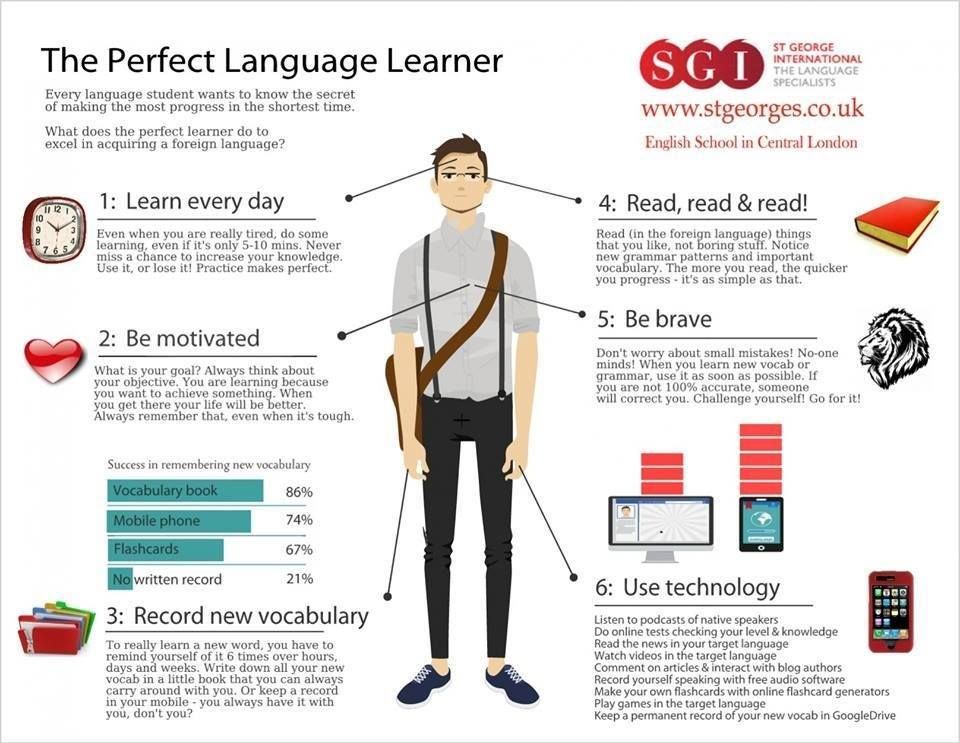 And vice versa.
And vice versa.
Naturally, due to such a rhythm of life, there is no talk of hobbies, travel, or personal life. I feel that my whole world has focused exclusively on study and stress, and the balance in other areas of life is significantly disturbed. This depresses me greatly. I have a few more months to study. How to learn to switch and cope with burnout from the load, so as not to quit now halfway to receive at least one diploma?
Evgenia, 23 years old
Evgenia, you are a great fellow for mastering your studies in the mornings and evenings for so many years, few people can boast of such perseverance. But this, logically, is given to you with great difficulty. For four or five years of study, you were exhausted, mentally and physically.
You write that you have a few months left to study. I would suggest that you divide the request from your letter into two separate ones: what to do so that you have the strength to finish your studies, and then how to deal with what you will eventually do in life.
The first part is quite physiological: consult a doctor and take at least a minimal pool of tests for vital signs that affect energy balance: vitamin D, ferritin, hemoglobin. Due to the lack of proper rest and constant stress, any, even the strongest body, is depleted. And yours is no exception. If the matter is a lack of some vitamins or trace elements, this is easily solved by taking medications.
If everything is in order in terms of physiology, try to balance rest and study as much as possible
Rest well, do what turns your head off as much as possible, brings pleasure and relaxation. Even if there is a shortage of some elements in the body, all these actions will benefit you.
You have come a long way and will later regret if you do not take the very last step, stopping a couple of steps before the finish line. Perhaps in the future you will generally come to the conclusion that both professions you receive are not yours and you want to do something else. But now the main thing is to find the motivation in yourself not to quit your studies, write and defend diplomas without harm to physical or mental health, and then allow yourself a good quality rest that you deserve.
But now the main thing is to find the motivation in yourself not to quit your studies, write and defend diplomas without harm to physical or mental health, and then allow yourself a good quality rest that you deserve.
Sports help you to have a good rest.
Maybe you have a swimming pool nearby or some kind of fitness club where you can go for an hour a couple of times a week. With so much time and energy devoted to studying, you are most likely moving too little. Good healthy sleep (on a comfortable bed), quality food rich in minerals and nutrients, physical activity and walks in the fresh air are necessary to improve well-being, fight stress, and restore the body to a high quality.
You have a morale that many may envy. Now, in order not to give up what you have planned, support yourself as much as possible at the physiological level. And soon, sitting with diplomas in your arms, you will rightly be proud of yourself, thinking about what a fine fellow you are.